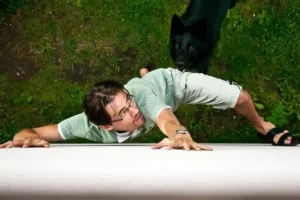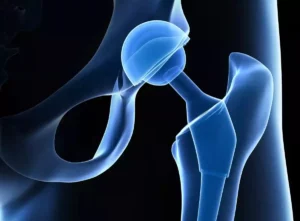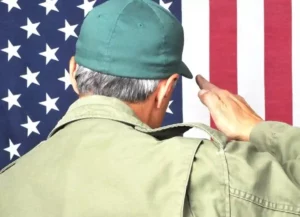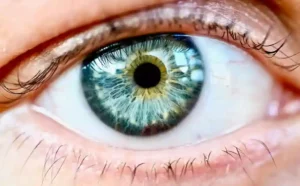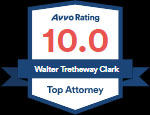When an individual begins to contemplate the possibility of taking their case to court, it’s all too easy to become intimidated by the legal process attached to the modern civil trial procedure. Although lawyers deal with these ideas and issues on a regular basis, there’s a good chance that a plaintiff for a case has little to no experience with courtroom procedure whatsoever. Instead of simply trusting an attorney to “handle it”, it’s always beneficial to understand how a civil case comes together, and what exactly happens before the trial begins. In fact, the basic foundational elements of a civil trial can be divided into four primary sections: pleadings, discovery, trial and appeal.
Defining the Pleadings in a Civil Trial
The road leading to a courtroom trial begins with two pleadings. The first pleading will originate with the plaintiff, who will file a pleading referred to as the “complaint”. Here, the plaintiff will accurately the reasons for the lawsuit and the alleged actions of the defendant which led to the filing of the suit. The defendant will then have the opportunity to file their “answer”. Within the answer, the defendant will address the situation described by the plaintiff, sharing their own version of the scenario described in the complaint.
The defendant will identify any inaccuracies found in the complaint and ensure that they have on record their own perspective on the events described by the plaintiff. At this point, the defendant can also fire a counter-claim against the plaintiff if they so choose. A counter claim will describe in-depth any harm inflicted by the plaintiff against the defendant. It is allowed, although not required, for the plaintiff to file a response to the counter-claim.
Understanding the Discovery Process
When the pleadings process comes to a close, the legal teams for the plaintiff and the defendant will enter what is referred to as the “discovery phase”. During this period of time, both legal teams will try to accrue as much information and evidence as possible which helps support their claims. The evidence collected during this time could include physical documents, depositions, interrogatories and more.
Each legal team is legally required to share information they find with the other team. This helps ensure that the trial is as fair and impartial to both sides as possible. During and immediately after the close of the discovery period, either legal team can make a motion to dismiss the case at hand. If, for example, evidence is revealed during this time which strongly reinforces the defendant’s claims, it may not be worth the effort of the plaintiff to keep the case open. It is at a point like this where dismissal could be strongly recommended.
Exploring the Court Trial
When discovery as fully culminated, both legal teams will begin preparing for trial. As part of their preparations, the attorneys for the plaintiff and defendant must each submit a written brief to the judge. This brief will outline and summarize the arguments to be used by each legal team during the trial. Once the trial begins, the legal teams representing the plaintiff and defendant will each have the opportunity to make an opening statement to the jury. The plaintiff will always begin this process, while the defendant’s legal team will issue their statement last.
The trial itself functions much like a criminal trial. Each legal team can present evidence, question witnesses and cross-examine witnesses presented by the opposing legal team. It is this period of evidence discovery and witness questioning which is most likely to influence a jury.
After all of the evidence has been presented, a closing statement can be read by a representative from each legal team. It is then up to the jury or judge (depending upon the specific courtroom) to carefully consider the situation and make the most honest, fair decision possible. At this point, either the legal team representing the plaintiff or the defendant must wait patiently for the jury or judge to reach their decision. When the verdict is read, either the plaintiff or defendant – typically not both – will be elated.
The Appeals Process
Once the decision is announced, it is impossible to avoid frustration and ill will by the losing party. An appeals process can then be initiated to challenge prior rulings. The appeals process is, by and large, one of the most powerful tools in the modern legal system today. Generally speaking, an appeal must be filed within 30 days of the end of the civil trial. This timeline begins on the day that the final judgment is field by the lower court who initially heard the case.
Our firm has been handling civil case cases throughout the California Low Desert and High Desert communities for over 30 years. Our team, including hardworking attorneys like Vivian Lin, make sure our clients get the attention they deserve. With a 95% success rate, the California personal injury attorneys at Walter Clark Legal Group will fight to hold those responsible for your loss accountable and win compensation to cover medical bills, lost wages, and pain and suffering.
If you have been injured in an accident and want to discuss your legal options, contact us today for a free consultation with an experienced personal injury lawyer. We have offices in Indio, Rancho Mirage, Victorville, and Yucca Valley and represent clients through the entire California Low Desert and High Desert communities.
DISCLAIMER: The Walter Clark Legal Group blog is intended for general information purposes only and is not intended as legal or medical advice. References to laws are based on general legal practices and vary by location. Information reported comes from secondary news sources. We do handle these types of cases, but whether or not the individuals and/or loved ones involved in these accidents choose to be represented by a law firm is a personal choice we respect. Should you find any of the information incorrect, we welcome you to contact us with corrections.
- What To Do If You Have Been Injured At A Concert In California? Mar 27,2024
- Walter Clark Legal Group Reimburses Thanksgiving Ride Fares Nov 14,2023
- Walter Clark Legal Group Donates Backpacks to Booker T. Washington Elementary School Aug 22,2023
- Walter Clark Legal Group Donates Backpacks to Underserved Students Aug 22,2023
- Walter Clark Legal Group Reimburses Labor Day Ride Fares Aug 21,2023
- 2023 Safe Ride Home Program Jun 21,2023















